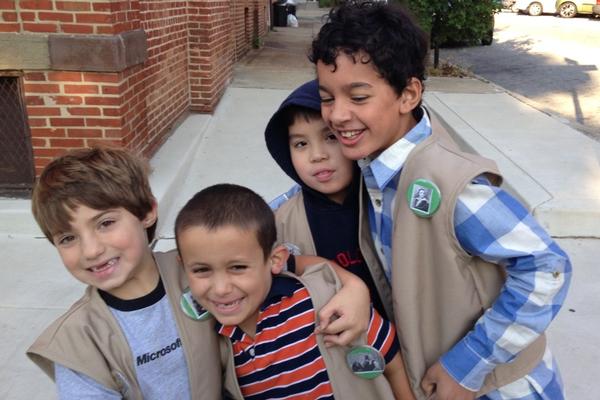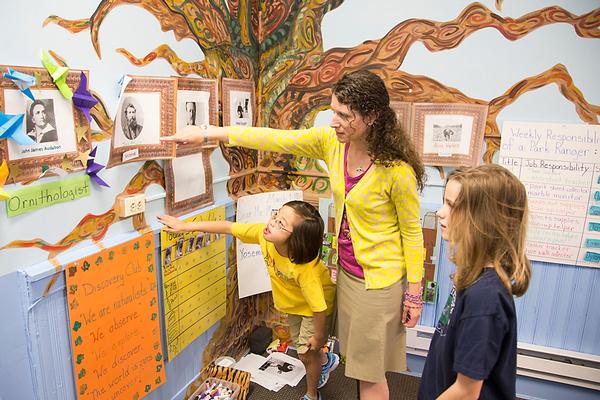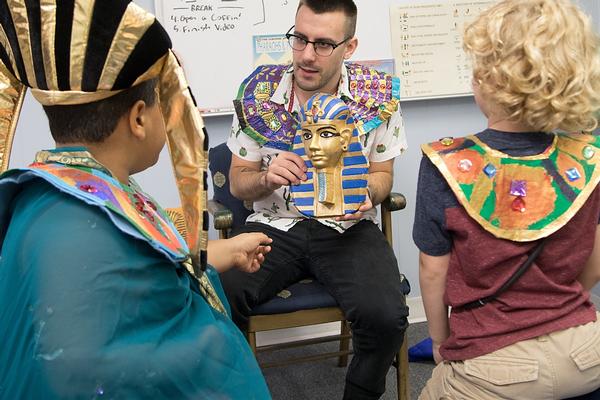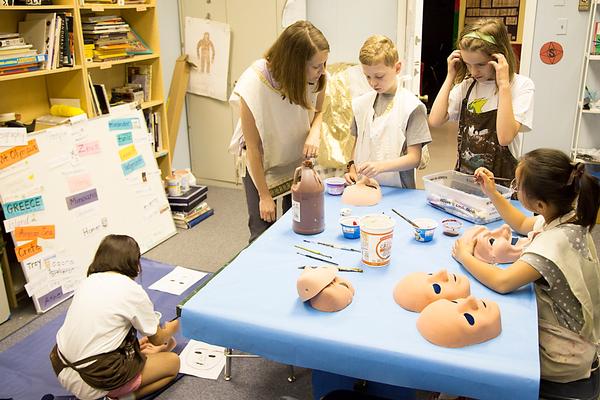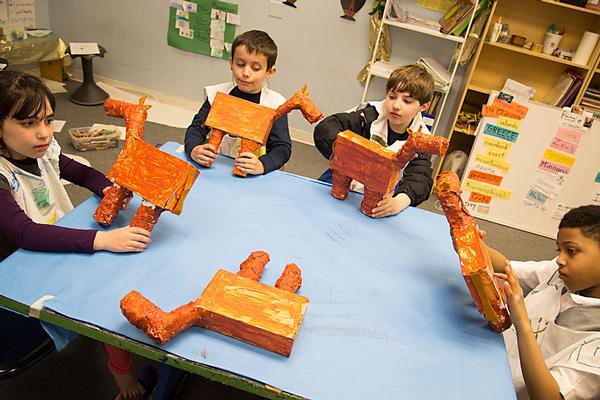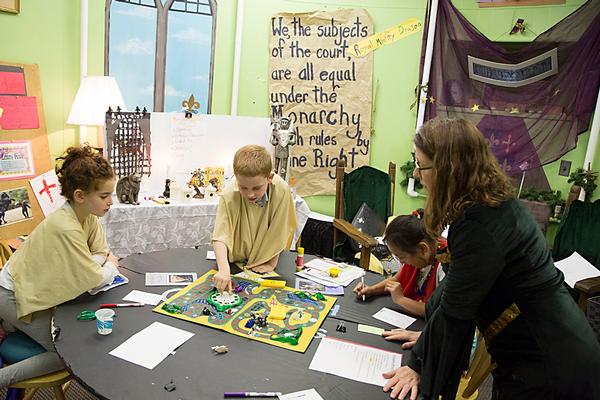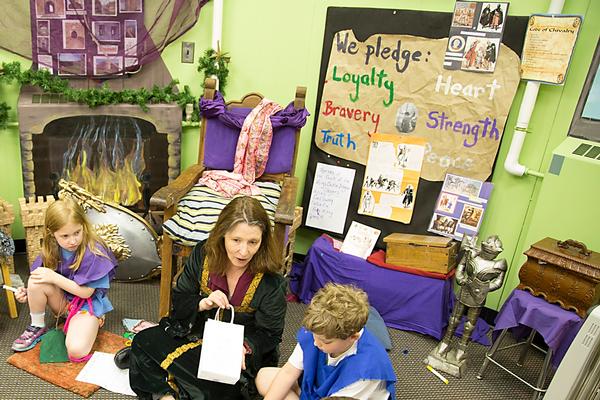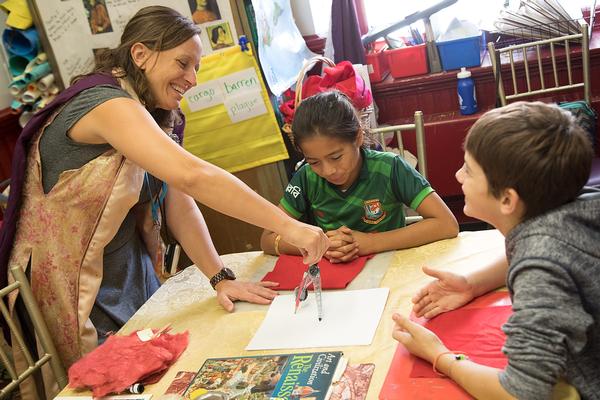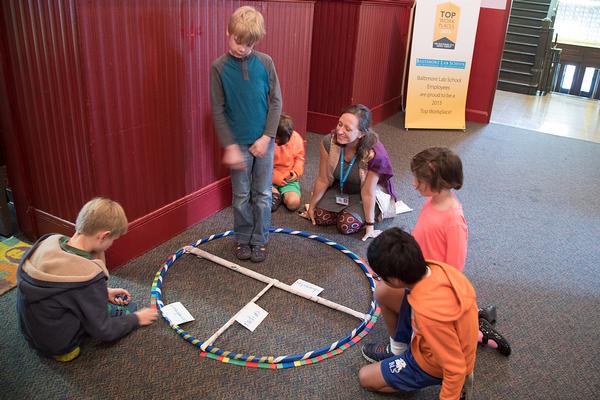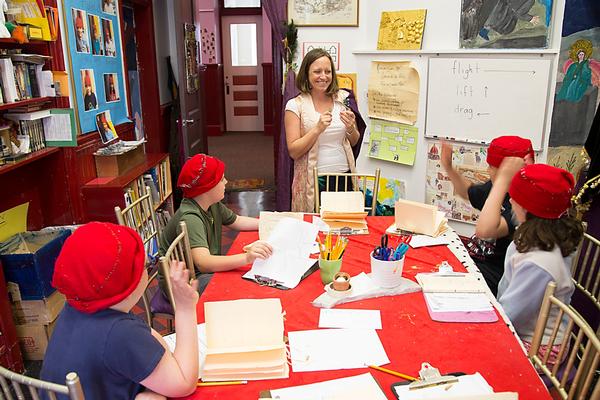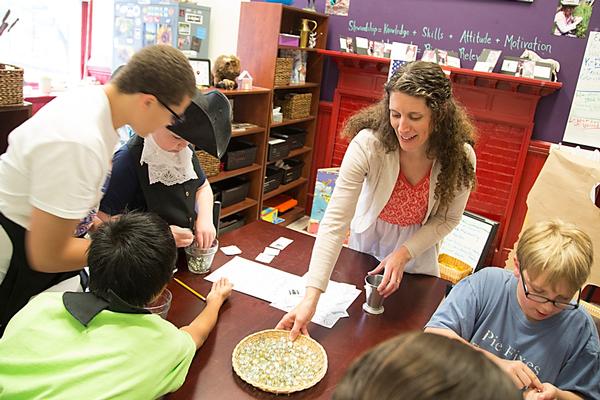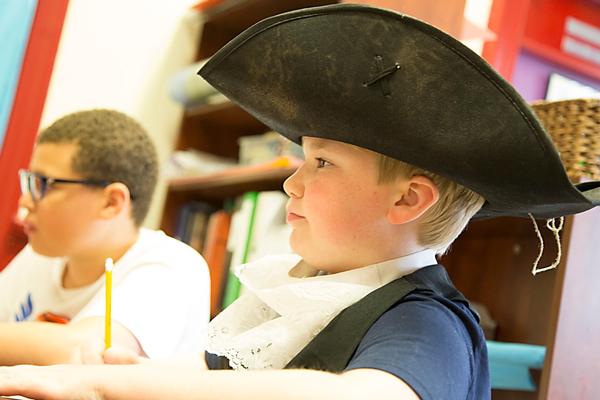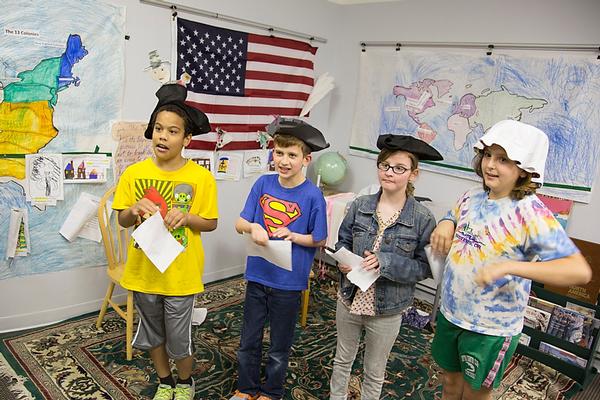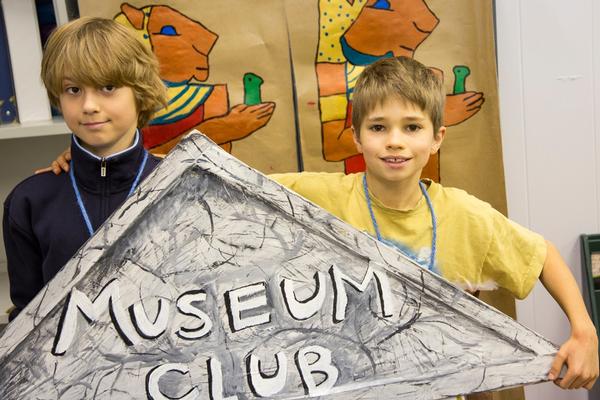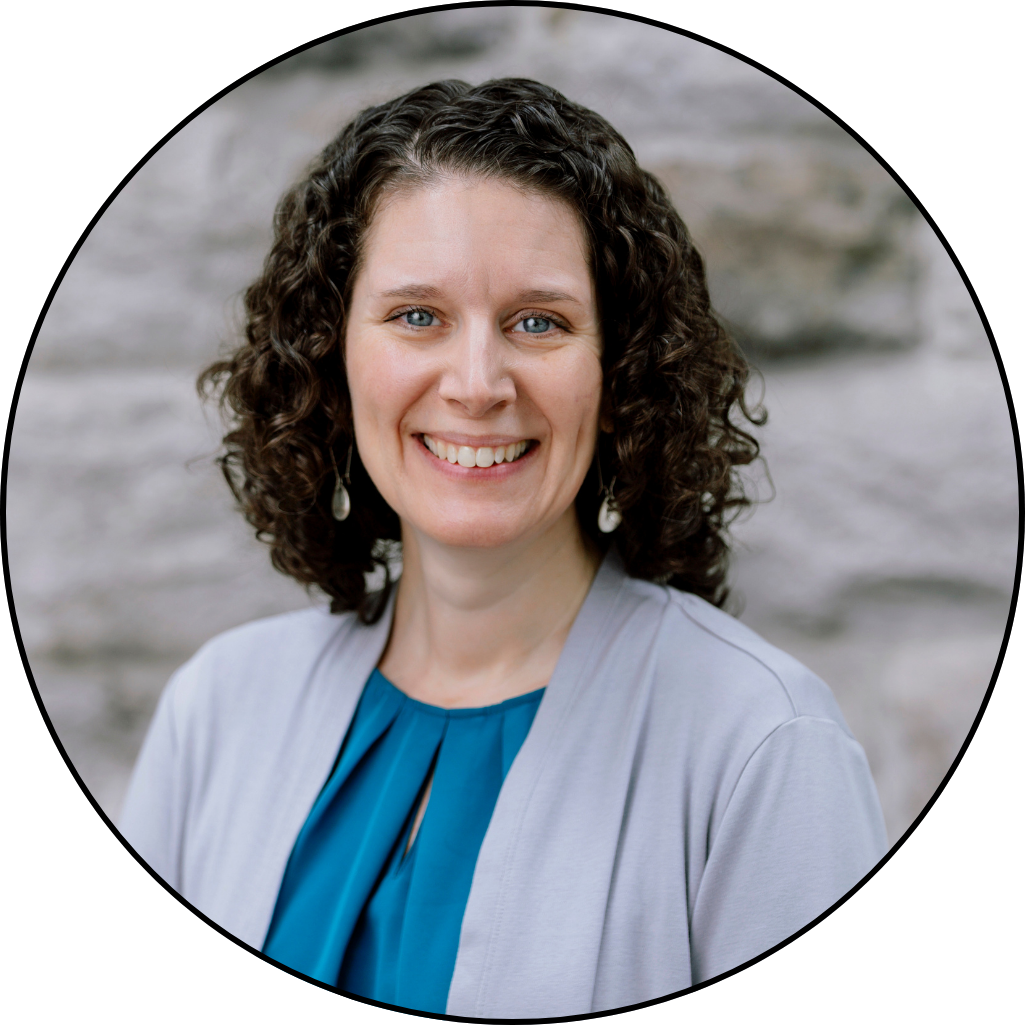
Academic Clubs
Academic Clubs
Among the most exciting – and transformational – features of Baltimore Lab School are our Academic Clubs. In themed spaces designed to foster student engagement, students occupy the roles of historic cultural leaders as they create hands-on projects that bring a compelling past world to life. Through these daily sessions, students engage in project-based exploration of history, literature, geography, science, archeology, sociology, and visual and performing arts. Academic Clubs are fully aligned with MD State Social Studies standards for grades 1-6.
Dynamic, Small Group Setting
The dynamic, small-group setting assures that every Academic Club is socially rich and academically rewarding. Emphasis is placed on critical thinking and problem-solving.
Students may:
- Explore the natural world as a park ranger in Discovery Club
- Investigate habitats of the world as an environmental steward in Explorers Club
- Examine strategies for civic leadership and urban development as a mayor in Groundbreakers Club
- Relive the spirit of our founding fathers in American Revolution Club
- Report on the development and growth of the U.S. Govt as a time-traveling journalist in Heralds of History Club
- Curate collections of global art and artifacts in Museum Club
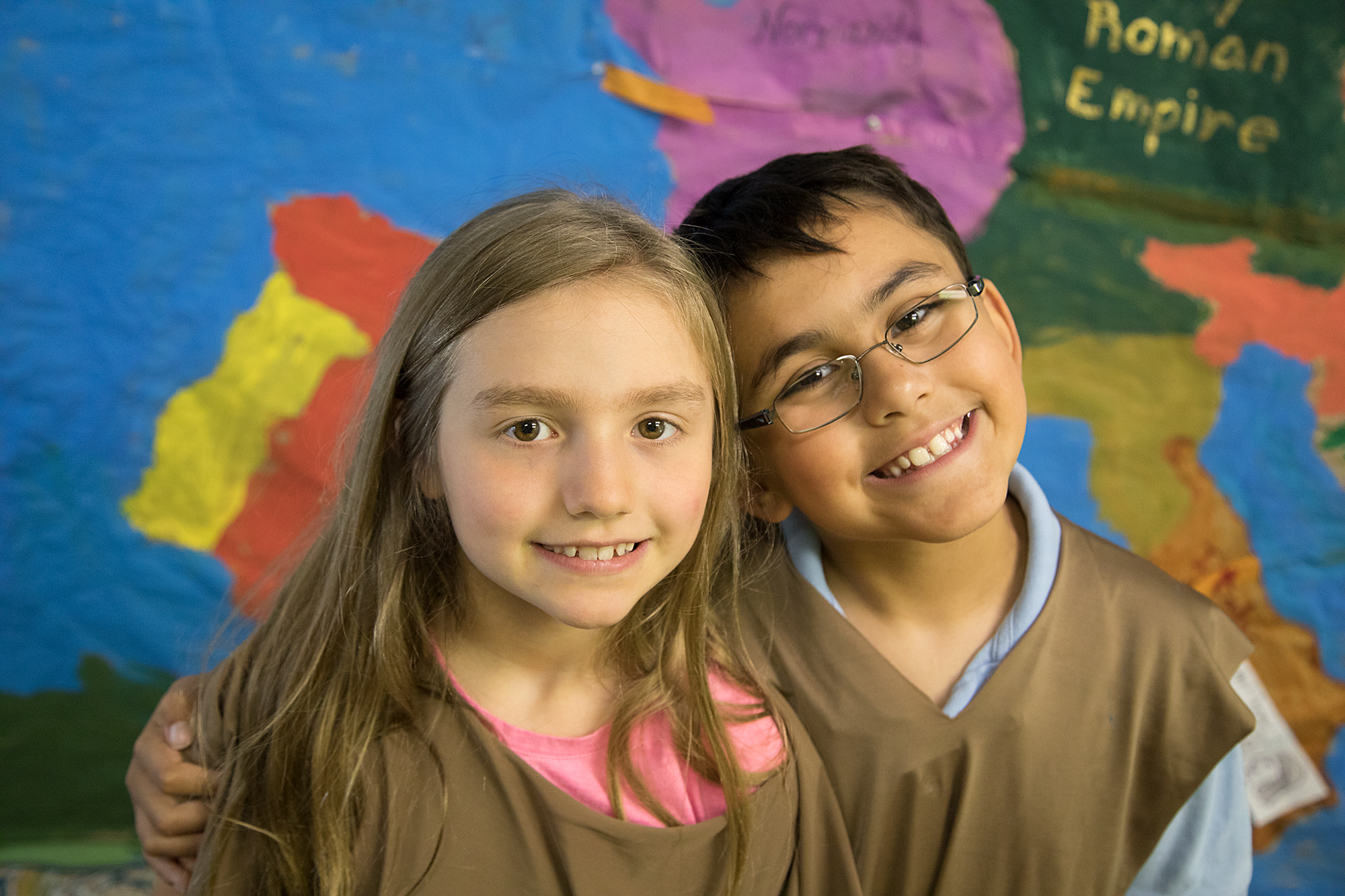
Did you know?
With the advent of Academic Clubs, Lab School founder Sally L. Smith made a major breakthrough in learning disabilities education. The integration of art, science, literature, and play in a rigorous academic environment is the embodiment of The Lab School philosophy. Over the years, the Academic Club model has been extensively researched; results prove the success of this innovative teaching approach. In response to demand, The Lab School developed The Academic Club Teaching Service (ACTS) to guide teachers and schools around the country in implementing the Academic Club Teaching Methods.
discovery club
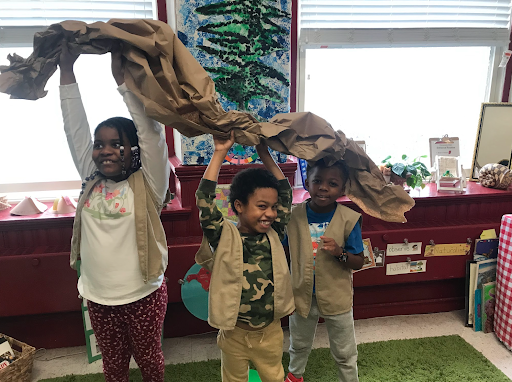
Discovery Club (Grades 1 & 2) employs hands-on art projects, music, and drama to immerse 6 to 7-year-old students in learning about communities, civics, environmentalism, national parks, green spaces, conservation, preservation, and naturalism. The club is centered around the idea that park rangers are stewards of our communities and that people throughout history and today work to protect our natural environments, animals, natural resources, and personal connections to nature. The curriculum utilizes the exploration of the conservation efforts of both historical and contemporary figures in the United States as a catalyst for students to observe, collect, estimate, measure, discuss, and experiment while they engage in multi-sensory activities, critical thinking, and socialization skills. In doing so, club members learn and reinforce academic skills in science, social studies, math, geography, reading, and writing. Students are asked to connect history and the natural world to their own families, schools, and communities, as well as to consider how they can participate in environmental initiatives like recycling, raising awareness about endangered species, gardening, and conservation. While the naturalists studied may vary from year to year, past club explorations have included Rachel Carson, Teddy Roosevelt and John Muir, George Washington Carver, Alice Waters, Pete Seeger, MaVynee Betsch, John James Audubon, Shelton Johnson, and Ansel Adams.
Explorers Club
Explorers Club (Grades 1 & 2) examines habitats around the world through the lens of environmental stewardship. As students explore different biological communities, they will focus on spreading information about what they have learned. Additionally, they will bring awareness in our school community to actions humans can take to protect and sustain these ecosystems, benefiting people and the planet on a local, national, and global scale. Students will engage in a variety of hands-on, project-based investigations that will require them to integrate knowledge and skills in geography, reading, writing, the arts, science, math, engineering, public speaking, and more.
GROUNDBREAKERS club
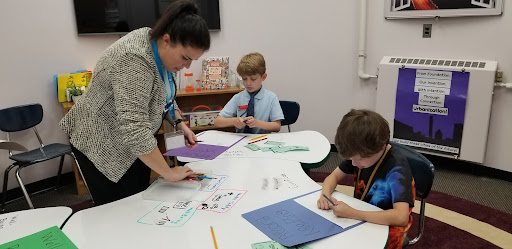
The Groundbreakers Academic Club (Grade 3) places students in the imagined role of mayors of important U.S. cities as they prepare for the future. The club leader is a consultant who gathers these mayors at a mountaintop retreat to learn more about urbanization and to set a course of leadership for their cities moving forward. Students will learn how city governments work, and how urban planning, economic as well as cultural development, and infrastructure, support the people of their cities. The content presented includes a broad spectrum of project-based learning challenges. Using engineering, visual arts, and performing arts, the activities include both concrete design challenges, such as how to provide sustainable water and energy to their cities, and more abstract investigations of how to make cities equitable for all residents, and the exploration of best practices for ethical leadership. Students will also engage in studies of geography, culture, innovation, and globalization by comparing and contrasting cities around the world. Emphasis is placed on learning from human mistakes of the past to transform the present into a better future for the planet. Building curiosity and delight in the complexities and joy of learning are the overarching goals of the curriculum.
american revolution club
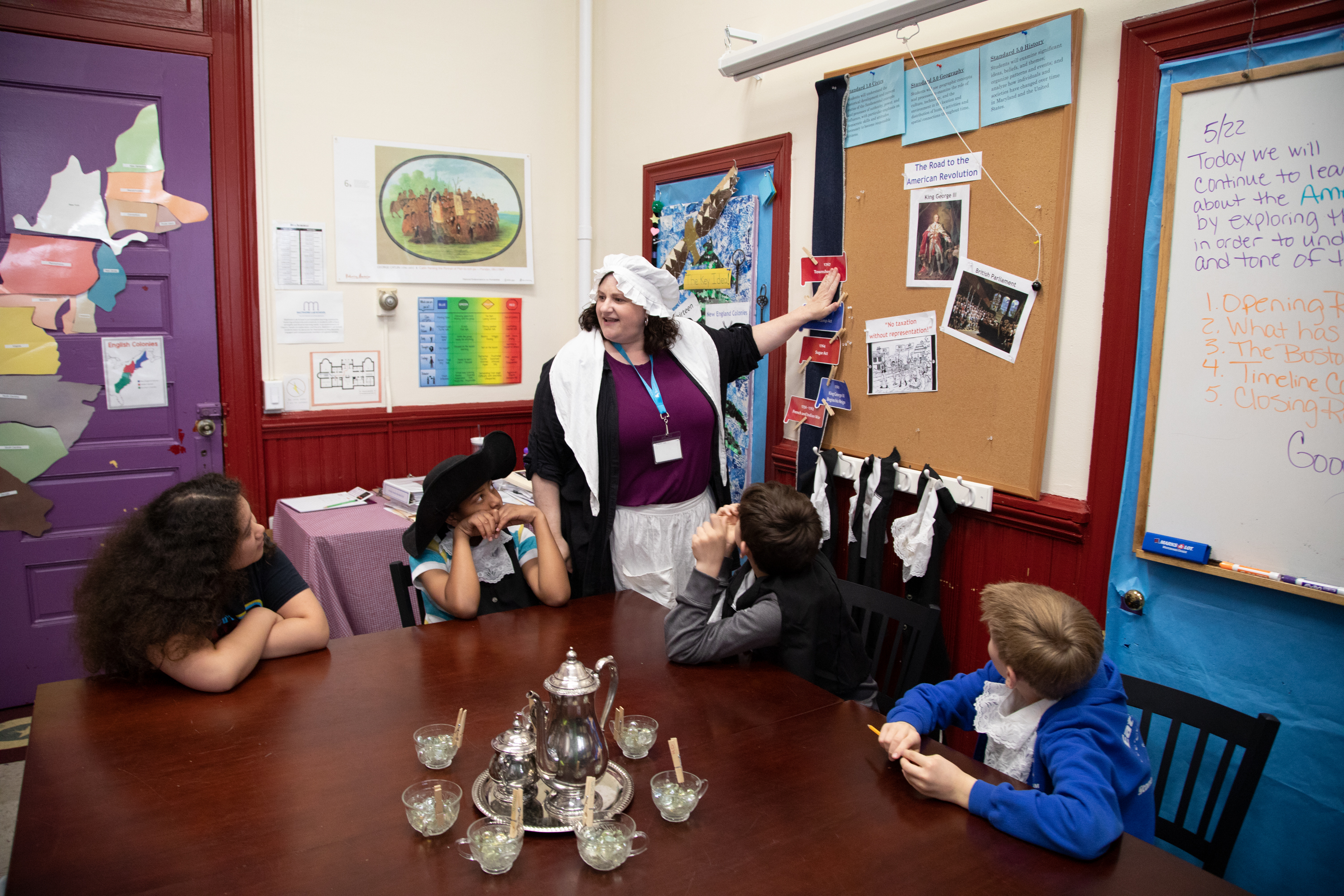
American Revolution Club (Grade 4) is set in Colonial America. The curriculum covers the mid-1400s to the late-1700s. Students take on the roles of different historical figures who represent the multiple experiences of early American life present during the founding of the United States. Emphasis is placed on perspective-taking, cultural differences, the origins of governmental structures, the growth of the 13 colonies, the struggles of the colonists under English rule, and ultimately the birth of a new nation. The year begins with an exploration of the Indigenous Peoples of North America who have inhabited the continent for thousands of years. Next, students evaluate the motives for European exploration and the geographic factors that influenced them. Following the Age of Exploration, students are immersed in the development of the early English colonies including Jamestown, Plymouth, and St. Mary’s City; culminating in a study of the three regions of the original 13 colonies. Along the way, students analyze the methods and motivation by which freedom was granted or denied for various groups. Finally, students are on the road to the Revolution, working to identify the reasons why the colonists eventually sought independence from England. Utilizing a multi-sensory approach, as well as dramatization and hands-on activities, encourages students to experience and feel the unfolding of a new nation; the acquisition of independence and a democratic society; cause-effect relationships; and problem-solving skills, as well as the development of expressive language.
HeRALDS OF HISTORY CLUB
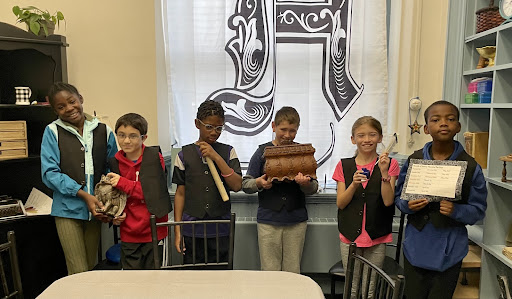
The Heralds of History (Grade 5) are messengers bringing the news of the day and the signs of the times to Baltimore Lab School. Led by the Editor, these time-traveling journalists research, study, and report on significant historical figures and events from 1780 to the present. As students explore the development of communication from early American print shops to social media they will answer questions like: What is journalism and how has it changed over time? What do journalists do? What does it mean to have an informed citizenry? Through inquiry, experiential learning, and hands-on discovery students will examine: the conflicts & compromises of the Constitutional Convention; the Bill of Rights; the Civil War and post-Civil War industrialization; the freedom of information; and how individuals as well as institutions are tools for change. Students will participate in a wide range of projects from printing their own pamphlets and broadsheets to investigating methods of long-distance communication, polling the public, interviewing sources, and exploring the history of newspapers and the role media has played in the past, present, and future. Strengthening problem-solving skills, engaging in daily critical thinking challenges, communicating through the visual and performing arts, and delighting in their discovery, as well as “living and learning” history are the goals of this academic club.
museum club
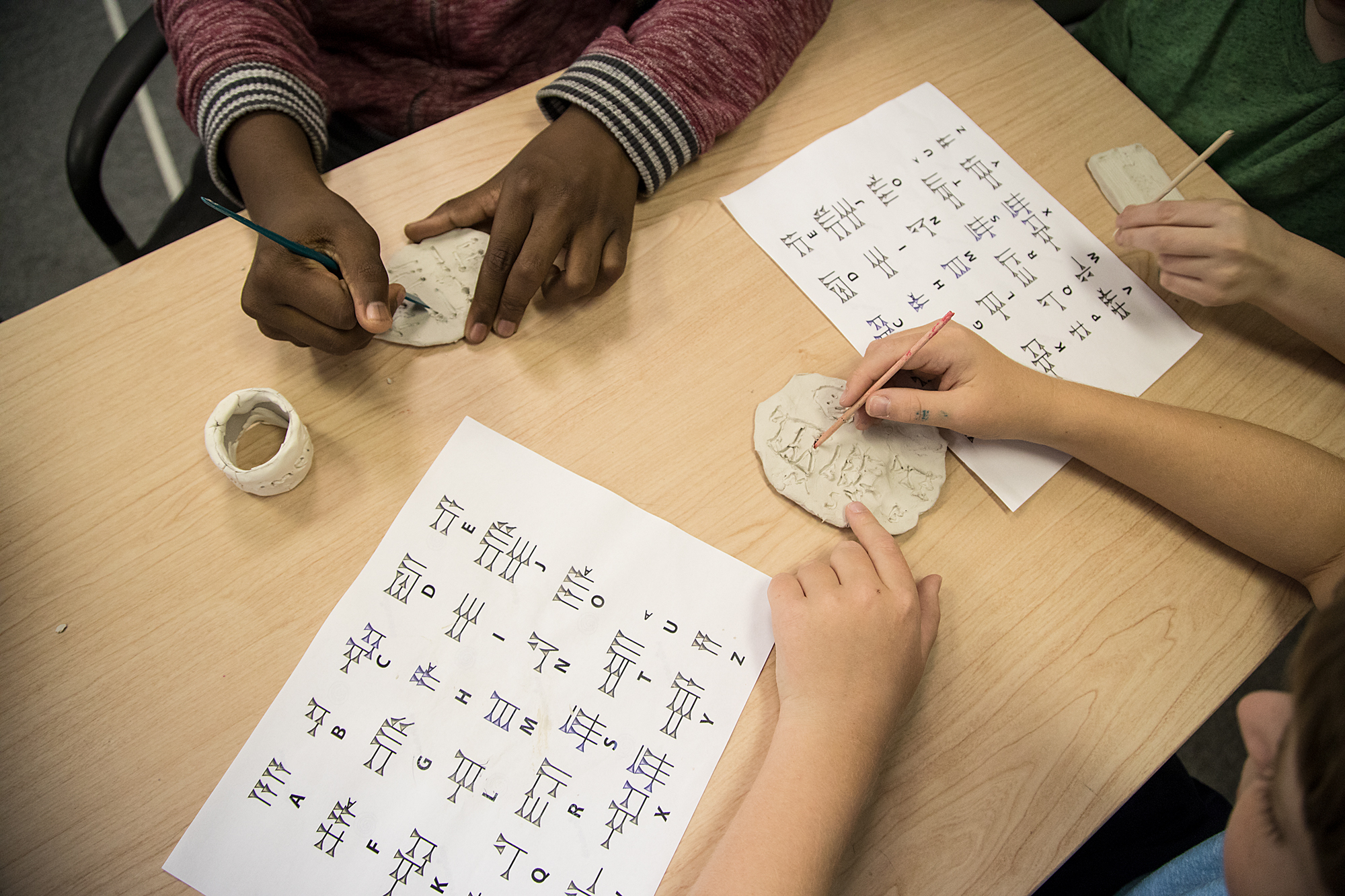
Museum Club (Grade 6) reviews major periods of history beginning with the Ancient Civilizations. The Club Leader is the Museum Director and the students are all employed by the BLS Museum as curators, researchers, exhibit designers, and more . Emphasis is placed on seeking out progress in government, architecture, agriculture, technology, and communications. The lifestyle of each ancient civilization is examined by looking at arts and crafts, tools, inventions, religion, science, language, clothing, and housing. Replicas of artifacts from each period of history are made and displayed in a “museum.” Several times a year a museum “opening” is held during which each curator speaks to visitors about the exhibits they researched and designed. The multi-sensory approach and hands-on activities encourage a feeling for the development of civilization, the acquisition of classical knowledge, cause-effect relationships, and problem-solving skills as well as the development of expressive language.

